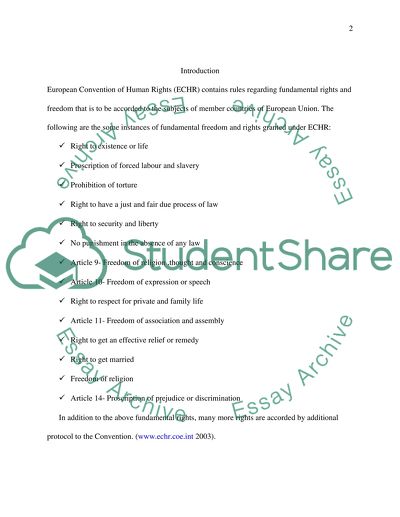Cite this document
(“Compare and contrast the judgements of the European Court of Human Essay”, n.d.)
Compare and contrast the judgements of the European Court of Human Essay. Retrieved from https://studentshare.org/miscellaneous/1550827-compare-and-contrast-the-judgements-of-the-european-court-of-human-rights-in-refah-partisi-others-v-turkey-judgment-of-grand-chamber-13-february-2003-and-united-communist-party-case-v-turkey-judgment-of-30-january-1998-can-they-be-reconciled
Compare and contrast the judgements of the European Court of Human Essay. Retrieved from https://studentshare.org/miscellaneous/1550827-compare-and-contrast-the-judgements-of-the-european-court-of-human-rights-in-refah-partisi-others-v-turkey-judgment-of-grand-chamber-13-february-2003-and-united-communist-party-case-v-turkey-judgment-of-30-january-1998-can-they-be-reconciled
(Compare and Contrast the Judgements of the European Court of Human Essay)
Compare and Contrast the Judgements of the European Court of Human Essay. https://studentshare.org/miscellaneous/1550827-compare-and-contrast-the-judgements-of-the-european-court-of-human-rights-in-refah-partisi-others-v-turkey-judgment-of-grand-chamber-13-february-2003-and-united-communist-party-case-v-turkey-judgment-of-30-january-1998-can-they-be-reconciled.
Compare and Contrast the Judgements of the European Court of Human Essay. https://studentshare.org/miscellaneous/1550827-compare-and-contrast-the-judgements-of-the-european-court-of-human-rights-in-refah-partisi-others-v-turkey-judgment-of-grand-chamber-13-february-2003-and-united-communist-party-case-v-turkey-judgment-of-30-january-1998-can-they-be-reconciled.
“Compare and Contrast the Judgements of the European Court of Human Essay”, n.d. https://studentshare.org/miscellaneous/1550827-compare-and-contrast-the-judgements-of-the-european-court-of-human-rights-in-refah-partisi-others-v-turkey-judgment-of-grand-chamber-13-february-2003-and-united-communist-party-case-v-turkey-judgment-of-30-january-1998-can-they-be-reconciled.


